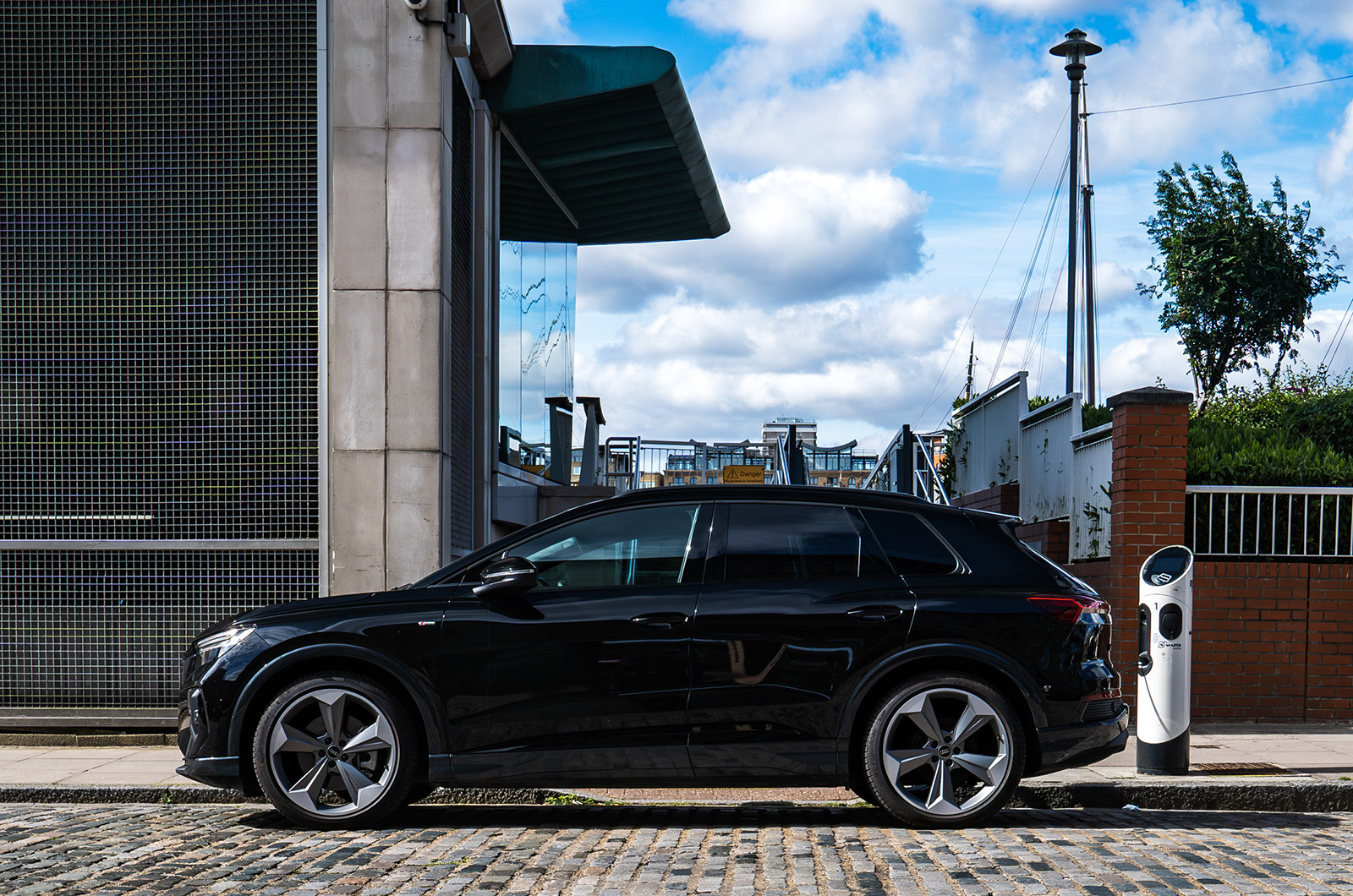Myth #7: Paying for charging is a hassle
Okay, so you’ve parked up at a charger and you’re ready to plug in and go. How do you pay? Well, there are a lot of charging points from a lot of different providers, and in the past that meant carrying around a batch of different account cards and apps for different charging providers – sort of like having a stack of different credit cards for each and every supermarket or convenience store that you use.
Well, that’s where the UK Government’s Public Charge Point Regulations of 2023 are here to help. Going forward, all charging operators will be required to provide contactless pay-as-you-go payment options, with clear transparency about pricing.
But it’s also where Audi is one step ahead of the problem. The Audi charging service – also available through the myAudi app[10] – gives you one-account access to 617,000 charging points across 27 European countries from a variety of charging companies, including the fast-growing ultra-rapid IONITY network.[12] You have access to three membership options: ranging from Basic pay-as-you go to Plus and Pro tiers which balance monthly fees with discounted charging rates.
Myth #8: Charging an electric car is expensive
Depending on which type and speed of public charging you use, top-up public charging can be as expensive as petrol or diesel – with pay-as-you-go rates of around 74p per kWh on the fastest ultra-rapid chargers in the UK network.[9]
One-touch multi-provider membership packages like the Audi charging service can help you control your costs. But, as any electric car owner will tell you, home charging is where the big savings come – both in time and money. After all, according to RAC Foundation research, the average UK car spends 96% of its time parked up, with 73% of that time invariably parked on a driveway at home.[13] And that’s usually overnight, when electric rates are lower.[14] So, there’s a potential time and cost benefit to charging your car when you’re not using it anyway – and it means you’ll start your next journey the next day with good range.
Obviously, the rates you will pay for your electricity will vary depending on your home energy provider, but electric car-friendly overnight tariffs will often be as little as 7p to 9p per kWh for overnight charging.[14] So, you could easily fully recharge the 77kWh battery of the Audi Q4 e-tron for as little as £5.39 to £6.93 a night. For a driver that does 7,400 miles a year – the equivalent of around 23 home charges – that could mean it costs you as little as £124 to £160 a year to charge an electric car.

